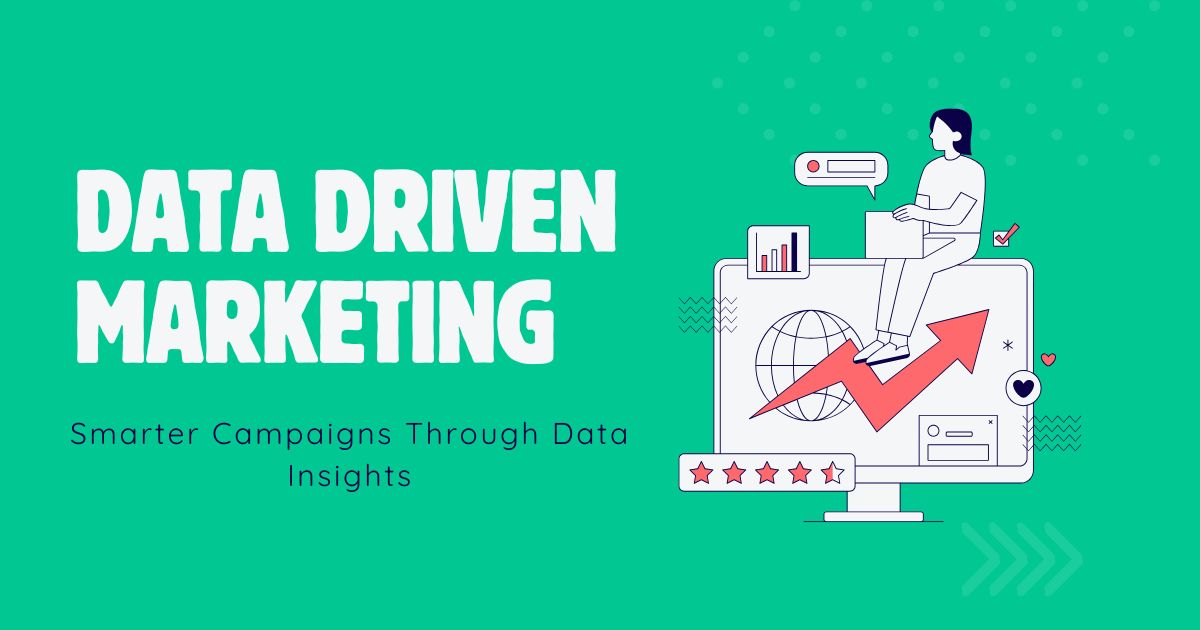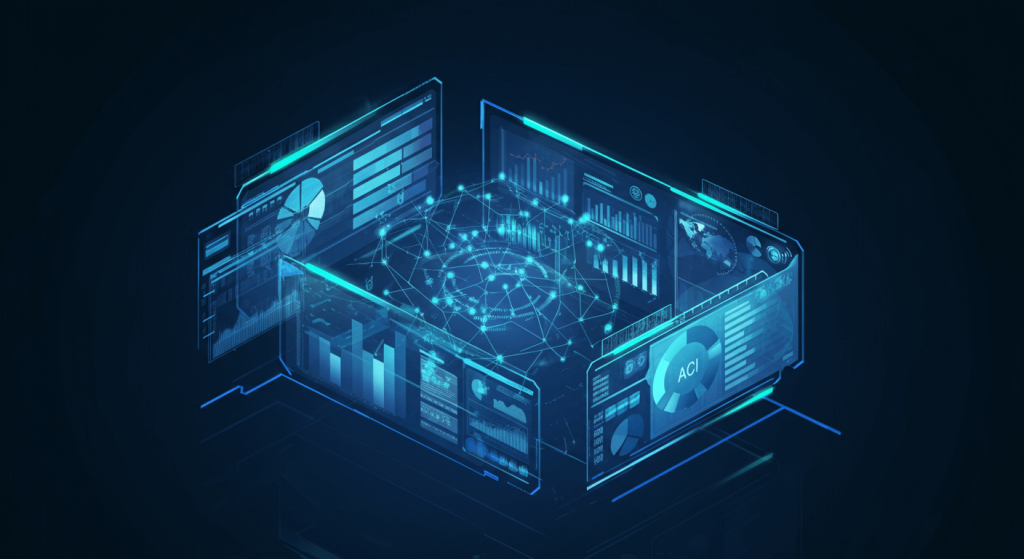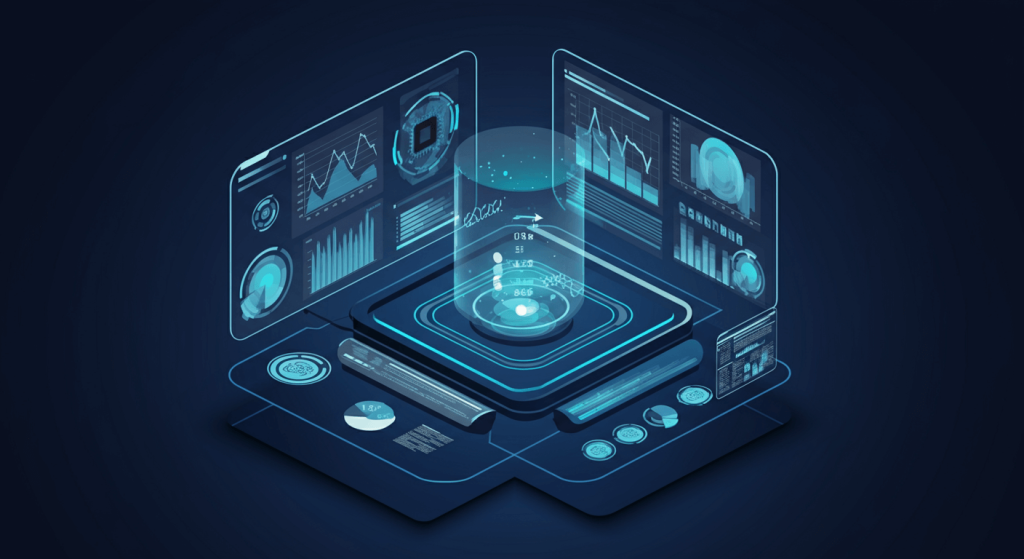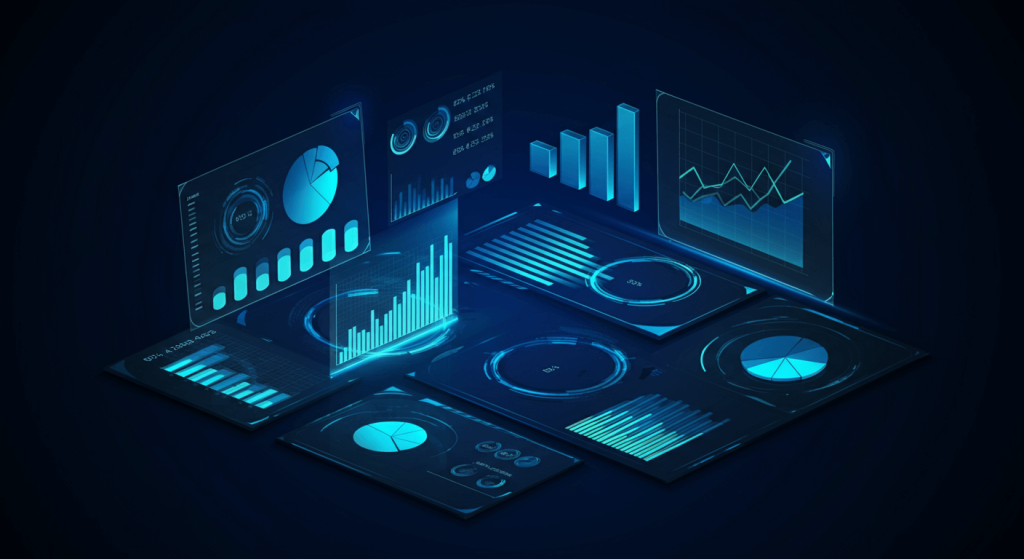
Artificial intelligence is revolutionizing data-driven marketing by enabling real-time analytics, predictive insights, and personalized customer experiences. AI helps businesses optimize campaigns, anticipate customer behavior, and deliver tailored content across channels, improving engagement and ROI. Emerging trends like voice search, AR, and privacy-focused solutions are shaping the future of marketing, giving businesses a competitive edge.
The Foundation of AI-Powered Marketing Analytics

Artificial intelligence excels at processing vast amounts of marketing data that would be impossible for human teams to analyze manually. Machine learning algorithms can identify patterns across multiple touchpoints, from website behavior and email engagement to social media interactions and purchase history.
Traditional marketing analytics often relied on historical data and basic segmentation. AI-driven analytics takes this several steps further by analyzing real-time data streams and identifying micro-patterns that reveal individual customer preferences. This deeper level of insight enables marketers to create highly targeted campaigns that resonate with specific audience segments
The key advantage lies in AI’s ability to continuously learn and adapt. As new data flows in, machine learning models refine their understanding of customer behavior, making predictions more accurate over time. This creates a feedback loop where marketing performance improves automatically without constant manual optimization.
Personalization at Scale Through Machine Learning
One of the most powerful applications of data driven marketing with artificial intelligence is dynamic personalization. AI systems can analyze individual customer journeys and deliver customized content, product recommendations, and messaging across multiple channels simultaneously.
E-commerce platforms use collaborative filtering and deep learning to suggest products based on browsing history, purchase patterns, and similar customer profiles. Email marketing platforms leverage natural language processing to optimize subject lines and content for each recipient’s preferences and engagement history. Explore data-driven email marketing strategies to implement personalized campaigns effectively.
Dynamic website personalization represents another frontier where AI excels. Websites can now adapt their layout, content, and calls-to-action based on visitor behavior, referral source, and predictive models about conversion likelihood. This level of customization was previously only possible for the largest companies with dedicated development teams.
The scalability of AI-driven personalization means small businesses can now compete with enterprise-level companies in delivering relevant customer experiences. Marketing automation platforms have democratized access to sophisticated personalization tools that were once exclusive to tech giants.
Predictive Analytics for Customer Behavior
AI’s predictive capabilities allow marketers to anticipate customer needs before they’re explicitly expressed. Customer lifetime value models can identify high-value prospects early in the sales funnel, enabling teams to allocate resources more effectively.
Churn prediction models analyze engagement patterns, support interactions, and usage data to identify customers at risk of leaving. Marketing teams can then create targeted retention campaigns. For an advanced approach, explore predictive and real-time personalized marketing.
Seasonal demand forecasting helps businesses prepare inventory and marketing campaigns based on predicted trends rather than just historical patterns. AI models can factor in external variables like economic indicators, weather patterns, and social trends that influence purchasing behavior.
Purchase timing predictions enable businesses to reach customers with relevant offers at optimal moments. Instead of generic promotional schedules, AI can determine when individual customers are most likely to make specific types of purchases.
Real-Time Campaign Optimization

Traditional A/B testing requires weeks or months to generate statistically significant results. AI-powered optimization can make thousands of micro-adjustments to campaigns in real-time. Learn how real-time data-driven marketing boosts performance.
Programmatic advertising platforms use machine learning to optimize ad placement, bidding strategies, and creative selection across multiple channels simultaneously. These systems can process auction data and make bidding decisions in milliseconds, maximizing ad spend efficiency.
Social media advertising benefits tremendously from AI optimization. Platforms like Facebook and Google use sophisticated algorithms to identify the best audiences, optimize ad delivery timing, and even suggest creative improvements based on performance data.
Email marketing campaigns can now adjust send times, subject lines, and content based on individual recipient behavior patterns. AI systems learn when each subscriber is most likely to engage and automatically schedule emails for optimal delivery times.
Advanced Customer Segmentation Techniques
AI has revolutionized how businesses segment their customer base. Traditional demographic segmentation is being replaced by behavioral segmentation based on actual customer actions and preferences rather than assumed characteristics.
Clustering algorithms can identify customer segments that weren’t obvious through traditional analysis methods. These AI-discovered segments often reveal new market opportunities and help businesses understand their customers in more nuanced ways.
Lookalike modeling uses machine learning to find new prospects who share characteristics with existing high-value customers. This approach typically generates higher-quality leads than broad demographic targeting because it’s based on actual customer behavior patterns.
Dynamic segmentation means customer groups update automatically as new data becomes available. Instead of static segments that require manual updates, AI systems continuously refine customer groupings based on evolving behavior patterns and preferences.
Implementing AI in Your Marketing Strategy

Implementing data-driven marketing with artificial intelligence does not require a complete overhaul of your existing marketing systems. Many businesses start small by applying AI tools to specific high-impact use cases, such as email marketing optimization, predictive lead scoring, or customer service chatbots. This phased approach allows teams to test AI capabilities, measure immediate results, and gradually expand its use across other marketing channels without disrupting ongoing campaigns.
A critical factor for successful AI implementation is data quality. AI algorithms rely on accurate, complete, and well-structured data to generate meaningful insights. Before deploying AI tools, businesses should conduct a thorough audit of their data collection processes, ensuring that all customer information—such as contact details, purchase history, engagement records, and demographic information—is consistent and standardized. Establishing robust data governance policies, including rules for validation, duplicate detection, and data maintenance, ensures that the AI system operates on reliable information, maximizing its predictive power and minimizing errors. Poor or inconsistent data will significantly limit AI effectiveness, regardless of how sophisticated the technology is.
Integration capabilities are another essential consideration when selecting AI marketing tools. The most effective platforms seamlessly connect with your existing systems, including CRMs, email marketing platforms, social media management tools, and analytics dashboards. A unified view of customer data enables AI to analyze interactions across channels, identify patterns, and deliver actionable insights that inform targeted campaigns. Integration also reduces manual data transfer, eliminates silos, and ensures that AI-generated recommendations are implemented efficiently throughout the marketing ecosystem.
Equally important is staff training and change management. AI implementation is not purely a technological initiative—it also requires cultural adoption within the marketing team. Team members need to understand how AI tools work, how to interpret insights, and how to incorporate these recommendations into strategic decision-making. Comprehensive training programs should cover system usage, interpretation of predictive analytics, and scenario-based exercises to show how AI insights can influence campaign planning. Additionally, organizations should foster a culture that embraces data-driven decision-making, encouraging teams to trust AI insights while maintaining human oversight for strategic judgment and creative input.
Measuring Success and ROI

AI-driven marketing initiatives require a shift in how success is measured compared to traditional campaigns. While metrics like click-through rates, open rates, and conversion percentages remain relevant, AI enables marketers to track more sophisticated indicators such as customer lifetime value (CLV), engagement propensity, predictive conversion rates, and attribution modeling. These advanced metrics provide a deeper understanding of campaign performance and help quantify the long-term impact of AI-driven decisions.
Multi-touch attribution models powered by AI allow businesses to analyze how different channels, touchpoints, and campaigns contribute to conversions. Instead of relying on last-click or first-click attribution, AI can assess the influence of every interaction a customer has had with your brand, identifying the channels and messages that are most effective. This enables marketing teams to optimize their budget allocation, invest in the highest-performing channels, and refine messaging strategies for maximum ROI.
Predictive ROI models go a step further by estimating the future value of marketing investments. By analyzing historical data, customer behavior patterns, and projected lifetime value, AI can forecast the potential revenue impact of campaigns and guide strategic decisions regarding marketing spend. This predictive insight allows businesses to justify investments in AI marketing tools and prioritize initiatives that deliver the highest long-term value.
Finally, real-time dashboards and automated reporting streamline performance monitoring, enabling marketing teams to stay informed without being overwhelmed by raw data. Advanced AI marketing platforms provide actionable insights rather than just presenting numbers, highlighting trends, anomalies, and opportunities for optimization. By leveraging these insights, marketers can make data-driven adjustments on the fly, improving campaign performance, increasing efficiency, and achieving measurable business outcomes.
Future Trends in AI Marketing
Voice Search Optimization
As smart speakers, virtual assistants, and voice-enabled devices become more integrated into daily life, voice search is rapidly transforming how consumers discover and interact with brands. Unlike traditional text queries, voice searches are often conversational, longer, and context-driven. AI-powered content optimization helps businesses adapt by identifying natural language patterns, predicting the most likely search intents, and restructuring website content to match how people speak. Marketers can also leverage AI to optimize FAQ sections, blog posts, and product descriptions for voice search, ensuring their brand is discoverable when users ask questions through Alexa, Google Assistant, Siri, or other platforms.
Computer Vision for Visual Marketing
Computer vision technology, powered by AI, is creating entirely new possibilities for visual marketing. AI can now analyze images, videos, and user-generated content to understand brand sentiment, detect objects, and evaluate engagement with visual assets. This allows marketers to measure how products are perceived, identify trends in visual content, and optimize creative assets for maximum impact. For instance, fashion brands can track which outfit styles are most photographed and shared on social media, while e-commerce companies can identify which product images lead to higher click-through rates or conversions. AI-driven visual analytics enable brands to create data-informed visual campaigns tailored to specific audience preferences.
Augmented Reality (AR) Marketing Experiences
AI-powered AR is bridging the gap between online and offline experiences by providing immersive and personalized marketing interactions. Retailers, furniture companies, and beauty brands are increasingly using AR tools to allow customers to try products virtually—like testing makeup shades, previewing furniture in a room, or customizing apparel in real-time. AI enhances these experiences by analyzing user behavior during the interaction and providing personalized recommendations, such as suggesting complementary products or alternative configurations based on engagement patterns. This not only improves customer satisfaction but also increases purchase confidence and reduces return rates.
Privacy-Focused AI Marketing Solutions
With growing concerns about data privacy and stricter regulations such as GDPR, CCPA, and other global standards, privacy-conscious AI marketing solutions are gaining traction. These tools leverage AI to deliver personalized experiences while minimizing the need for intrusive data collection. Techniques such as federated learning, differential privacy, and anonymized behavioral analysis allow marketers to optimize campaigns and segment audiences without directly storing sensitive personal information. By adopting privacy-first AI approaches, businesses can maintain consumer trust, comply with regulations, and continue delivering tailored marketing experiences without compromising security or ethics.
Predictive and Hyper-Personalized Experiences
Beyond these trends, AI is enabling predictive and hyper-personalized marketing on a scale previously unattainable. By analyzing historical and real-time customer data, AI can anticipate future behavior, recommend products before the customer searches for them, and trigger personalized interactions across channels automatically. This trend is shaping a future where marketing is not just reactive but proactively meets customer needs in the moment, enhancing engagement and brand loyalty.
Taking Your Marketing to the Next Level
Data driven marketing with artificial intelligence represents a fundamental shift in how businesses connect with their customers. The companies that embrace these technologies now will have significant advantages over competitors who wait to adopt AI marketing strategies.
Success with AI marketing requires a combination of the right technology, quality data, and skilled team members who can interpret and act on AI-generated insights. Start small with pilot projects that demonstrate clear value, then gradually expand AI implementation across your marketing operations.
The future belongs to businesses that can harness the power of artificial intelligence to create meaningful, personalized customer experiences. By investing in AI marketing capabilities today, you’re positioning your business for long-term success in an increasingly competitive marketplace.
Frequently Asked Questions (FAQ)
How does AI improve marketing ROI?
AI improves ROI by optimizing campaigns in real-time, identifying high-value prospects, predicting customer behavior, and automating repetitive tasks. This allows marketers to focus on strategies that deliver measurable results while reducing wasted spend.
Can small businesses benefit from AI marketing tools?
Yes. Even small businesses can leverage AI for personalized email campaigns, predictive analytics, social media optimization, and content recommendations. Many AI marketing tools are accessible and scalable, making them suitable for companies of all sizes.
How do I ensure AI-driven marketing respects customer privacy?
Implement strict data governance practices, anonymize customer data, and comply with regulations like GDPR or CCPA. Transparency and consent are essential—customers should understand how their data is used and have options to opt-out.
Do I need a dedicated data science team to implement AI marketing?
Not necessarily. Many AI marketing platforms are designed for marketers, with built-in predictive analytics, personalization, and reporting. However, having staff trained in interpreting AI insights can maximize the effectiveness of these tools.
How quickly can AI deliver results in marketing campaigns?
Results vary based on data quality, campaign complexity, and adoption pace. Some benefits, like optimized email send times or automated product recommendations, can be seen within weeks, while deeper predictive analytics and personalization strategies may take several months.
What are common pitfalls in AI marketing implementation?
Common challenges include poor data quality, lack of integration with existing systems, unrealistic expectations, and insufficient staff training. Addressing these early ensures AI delivers consistent and measurable results.
Leave a Reply